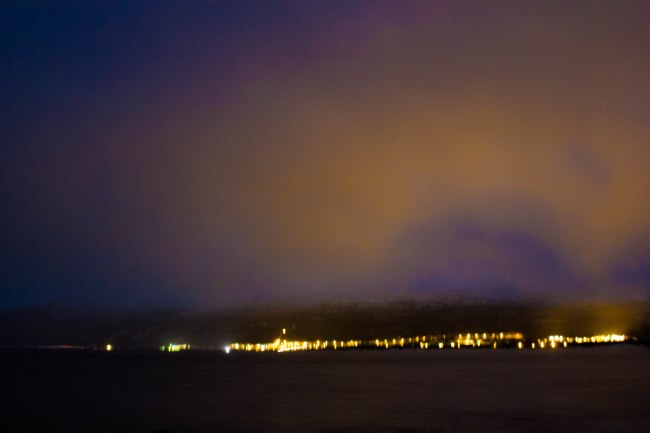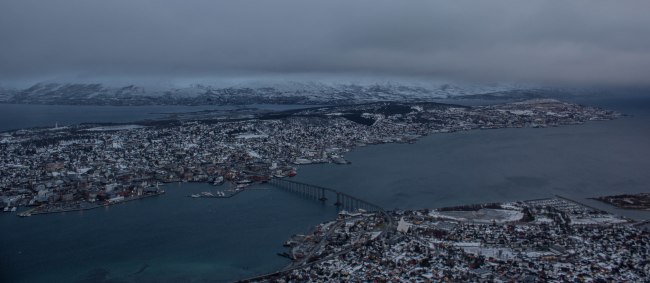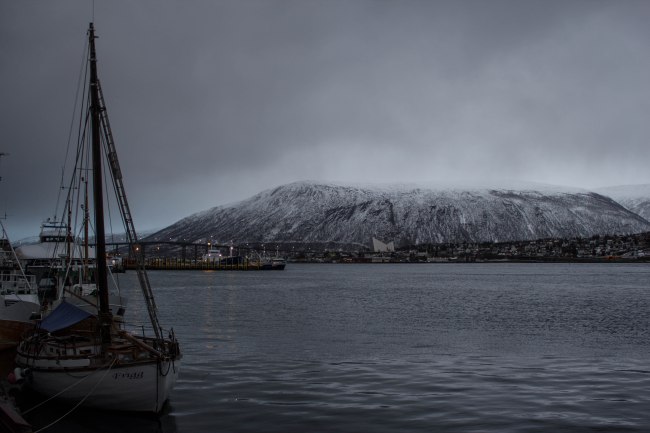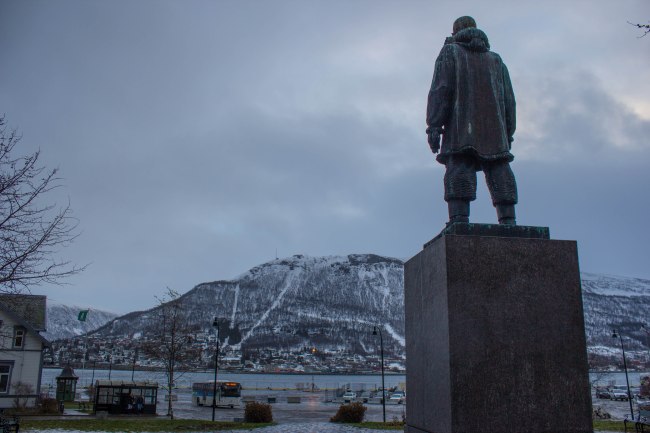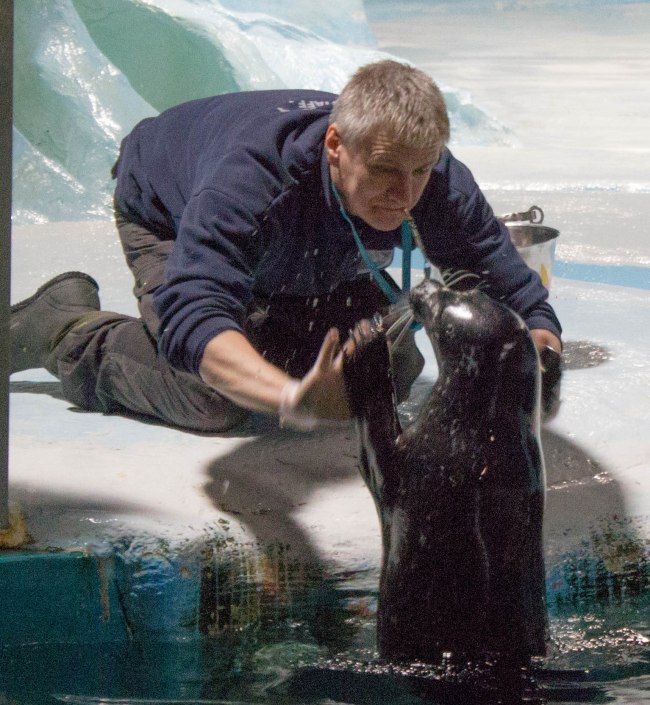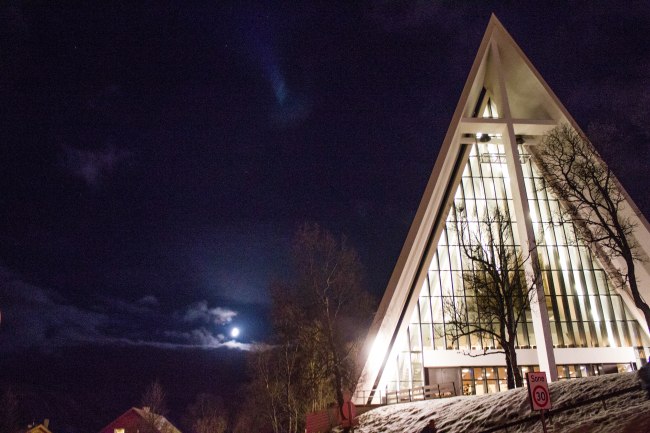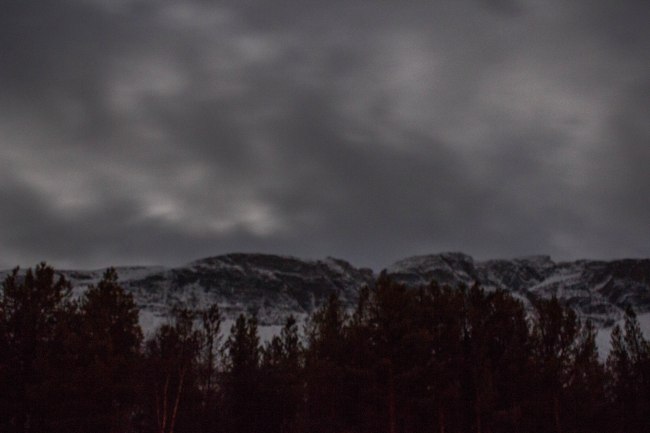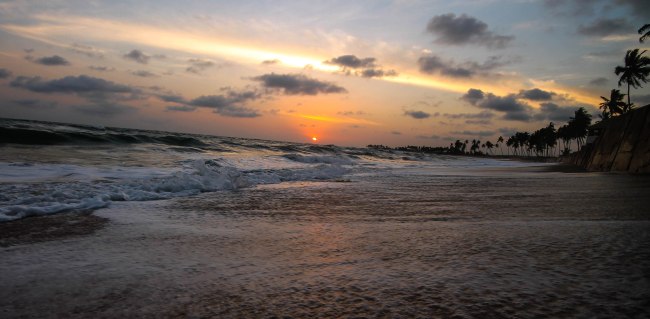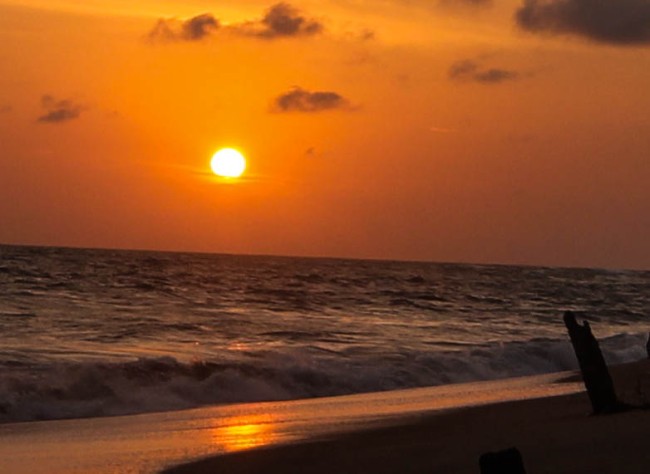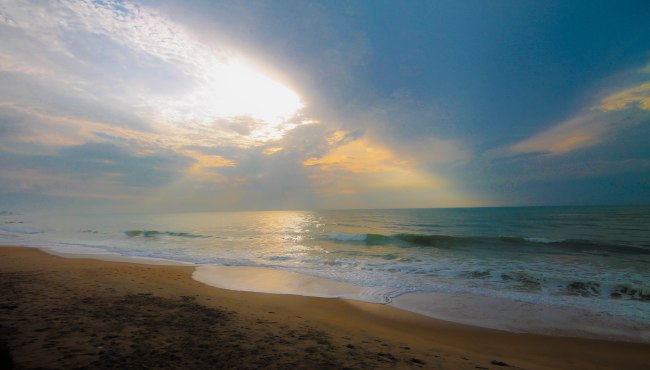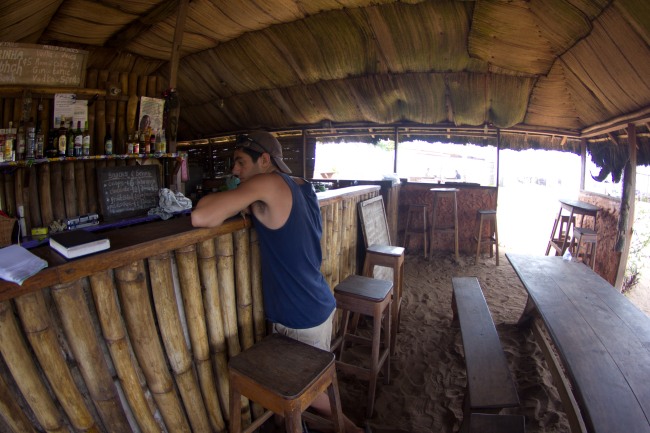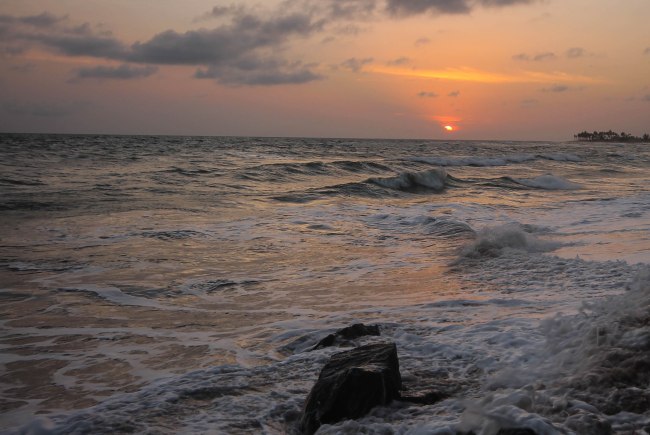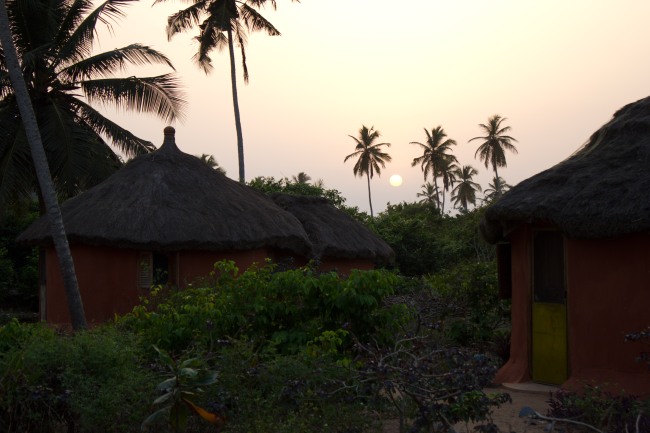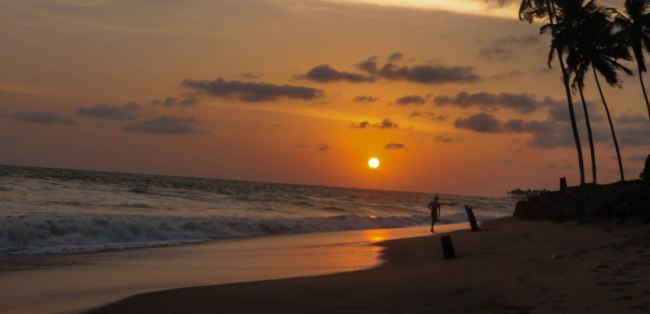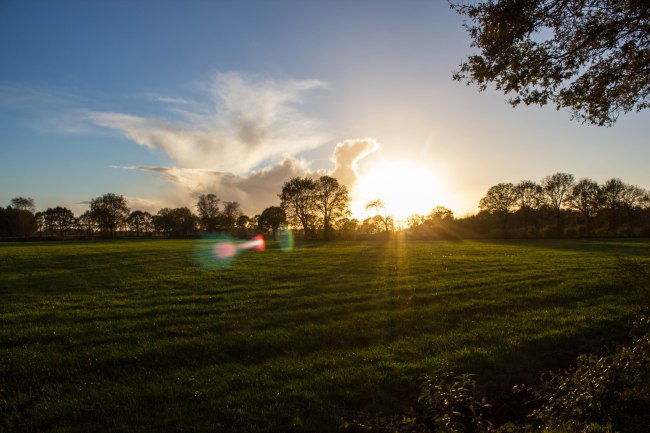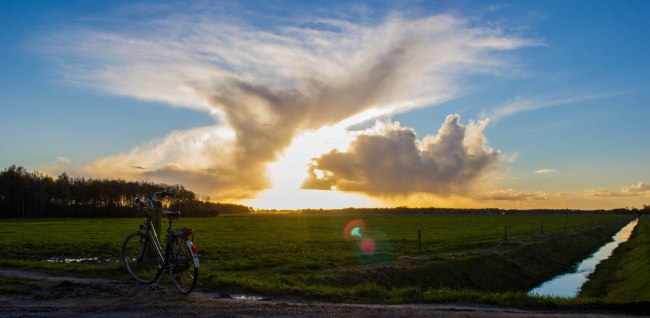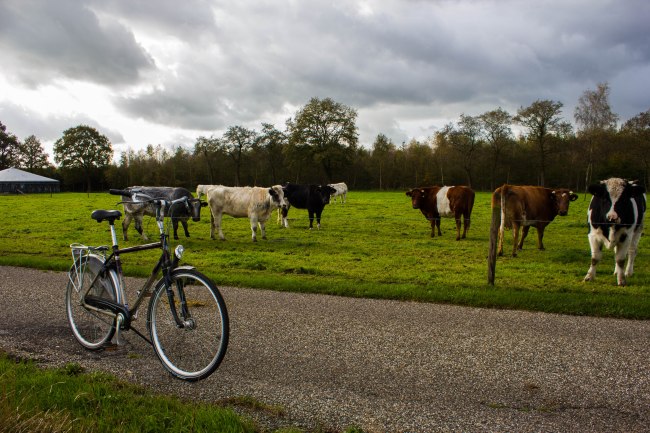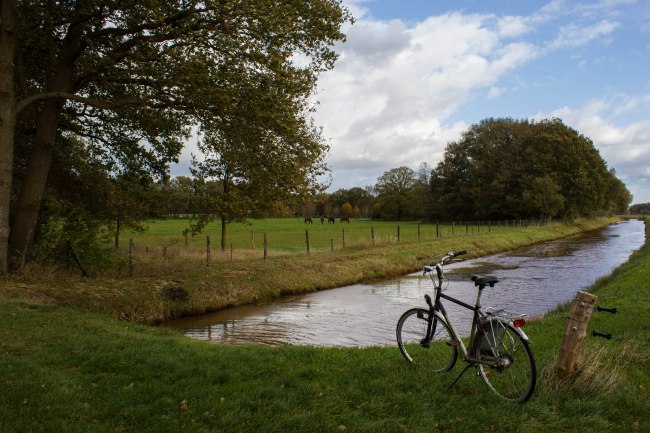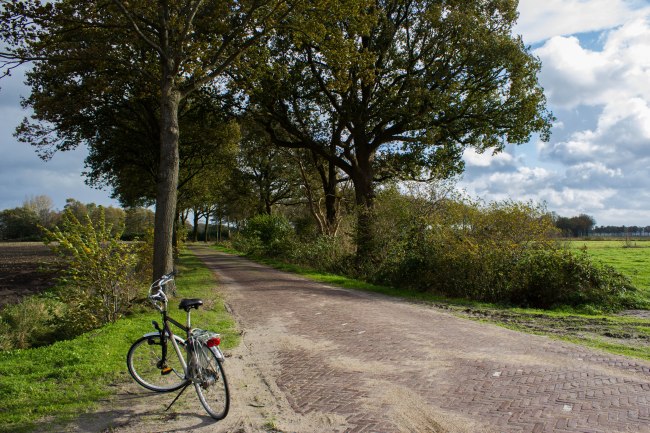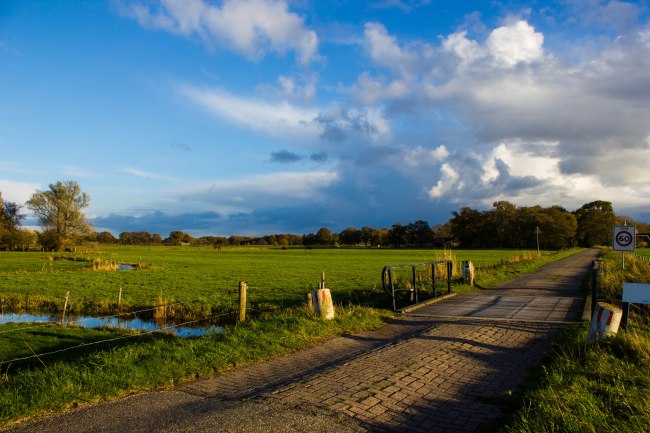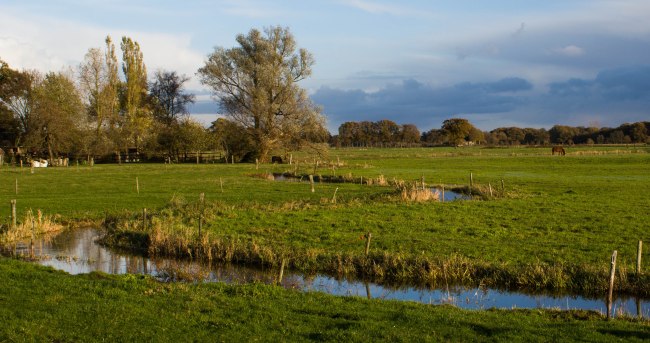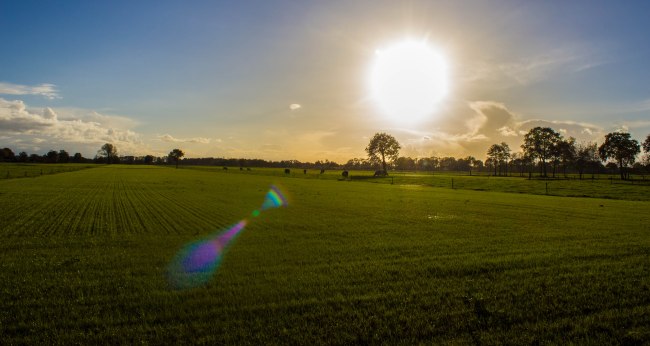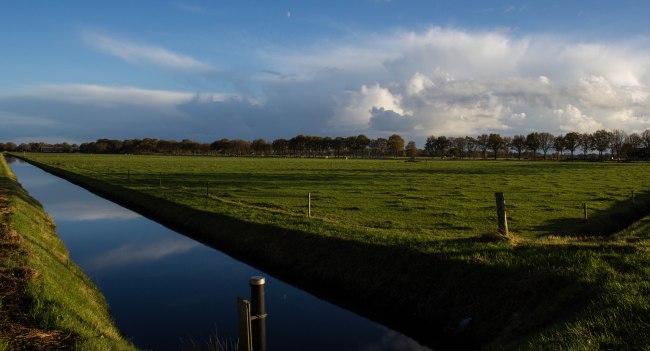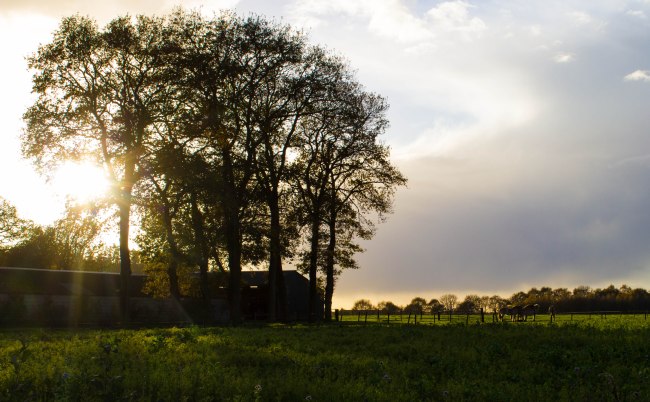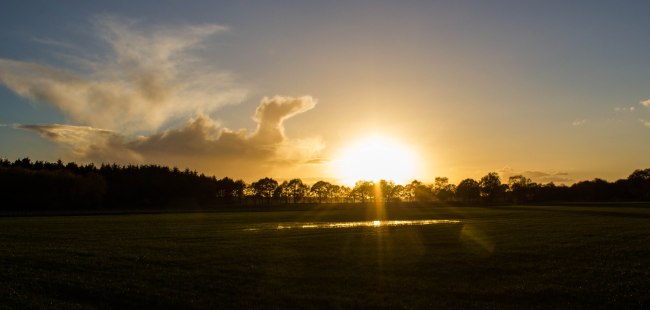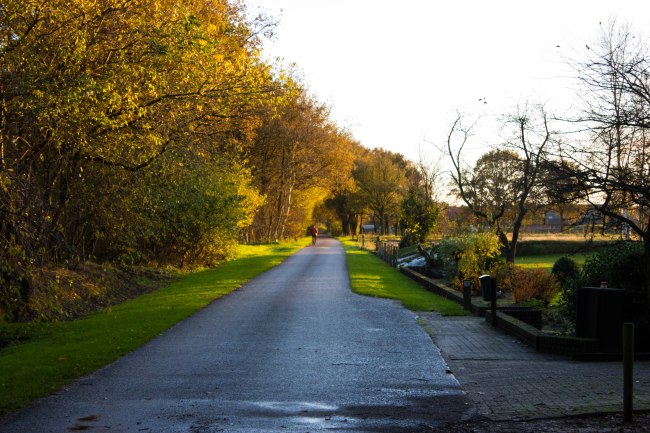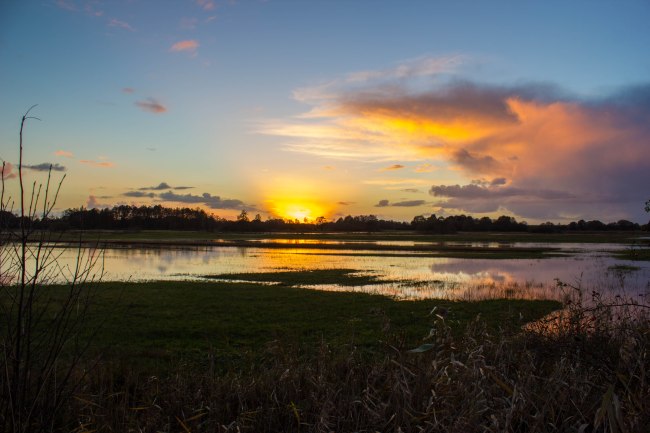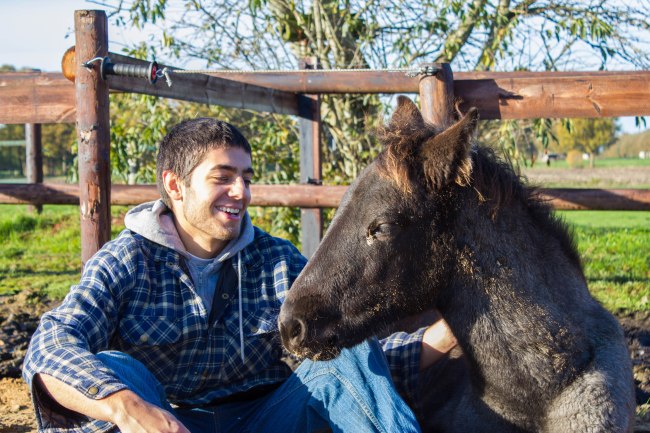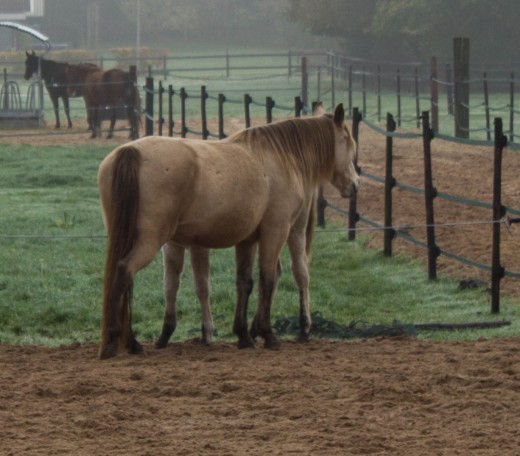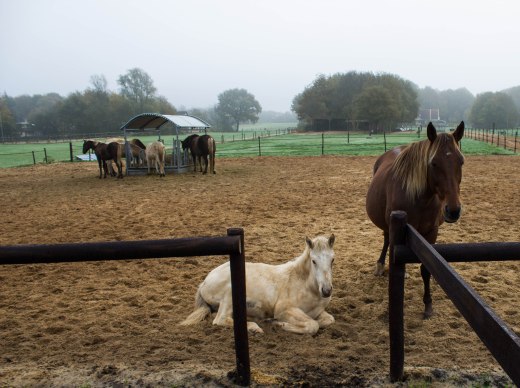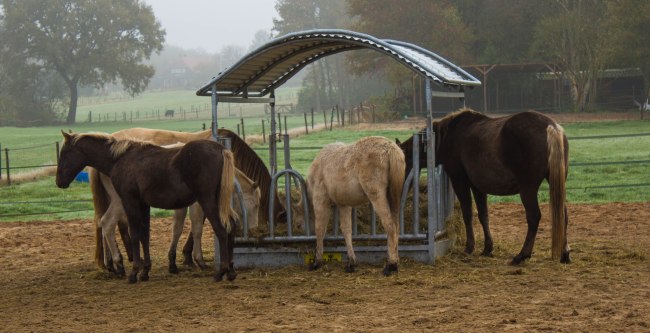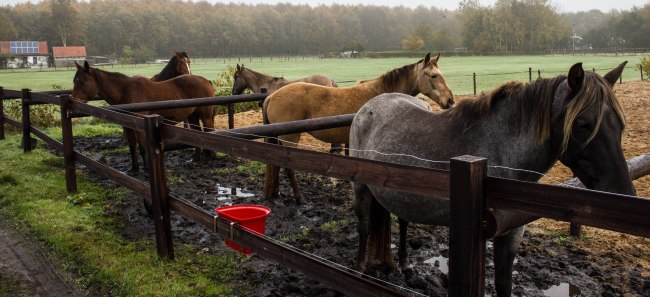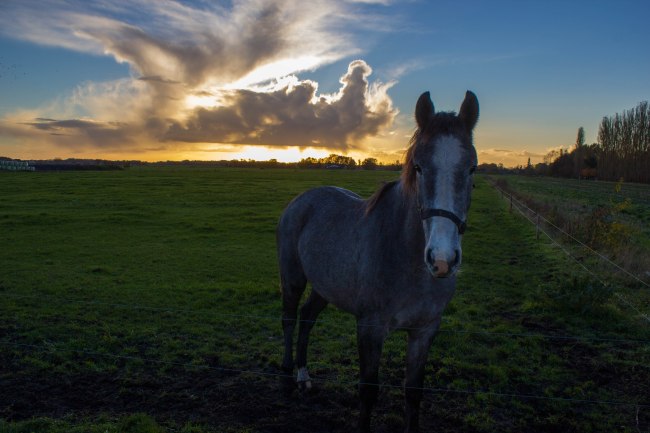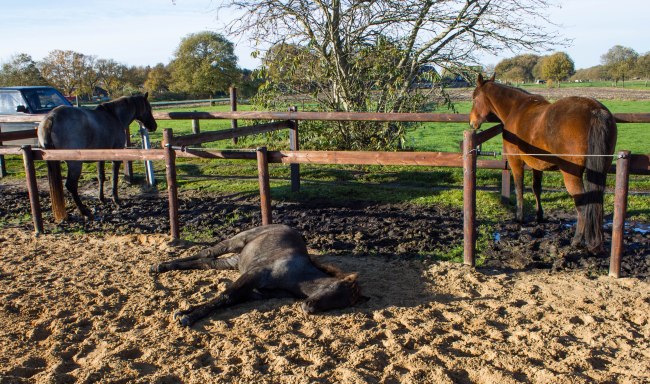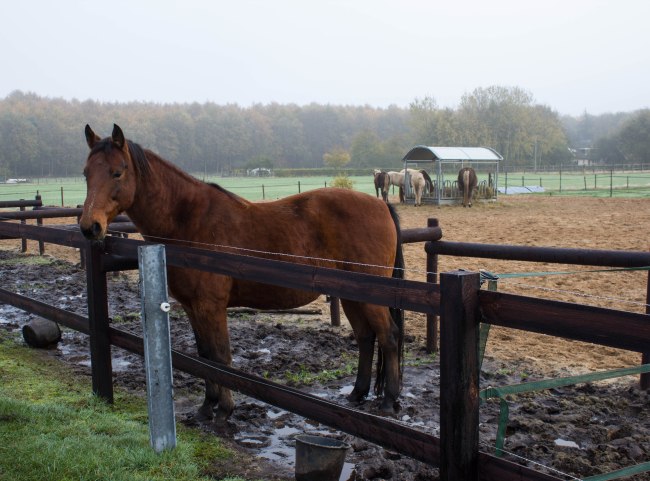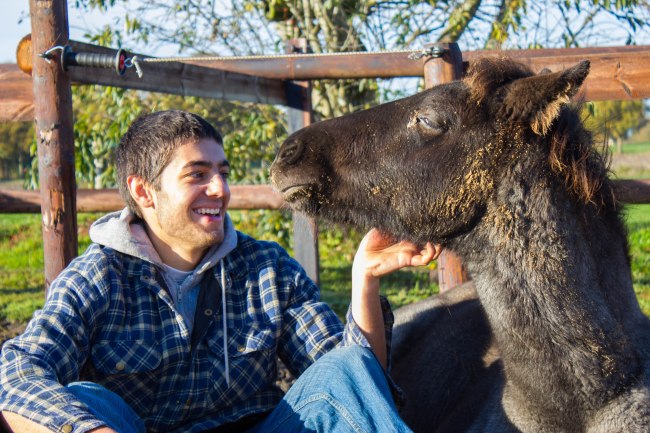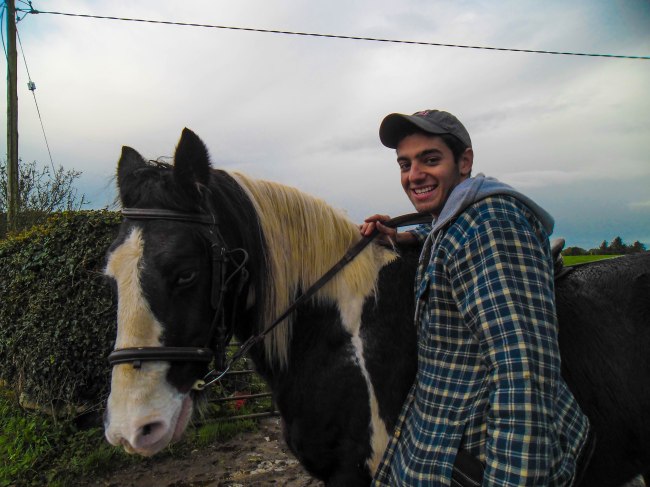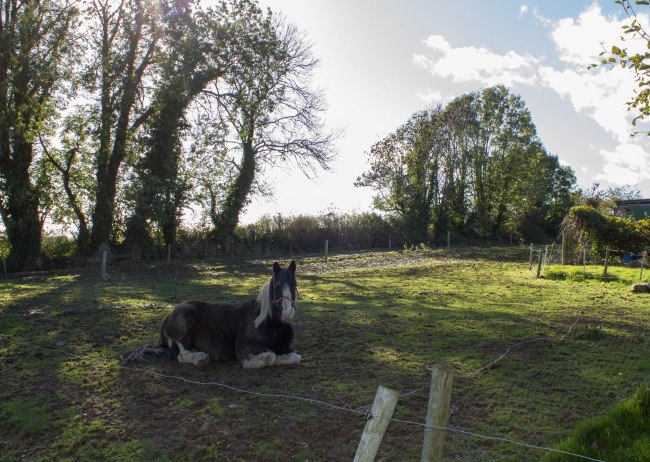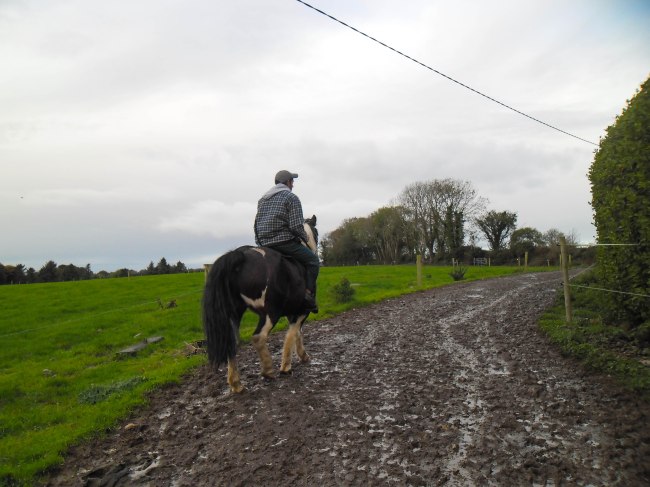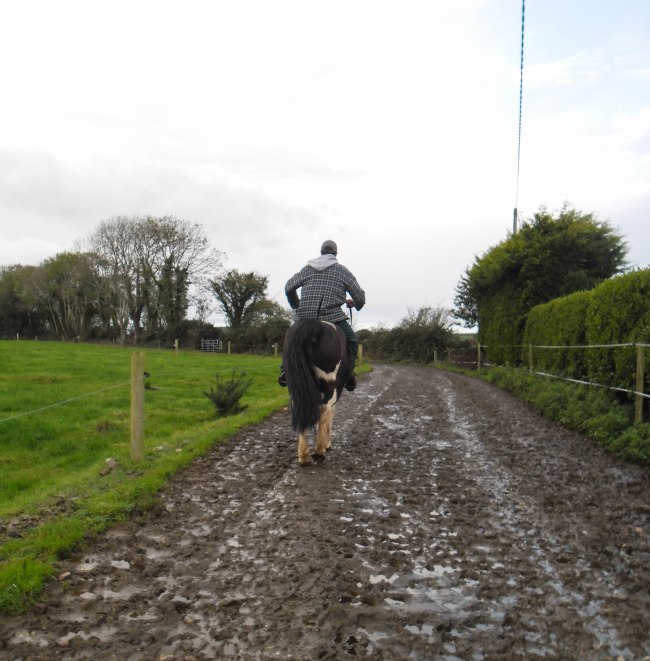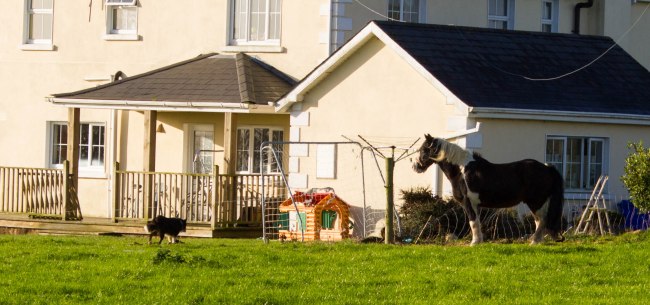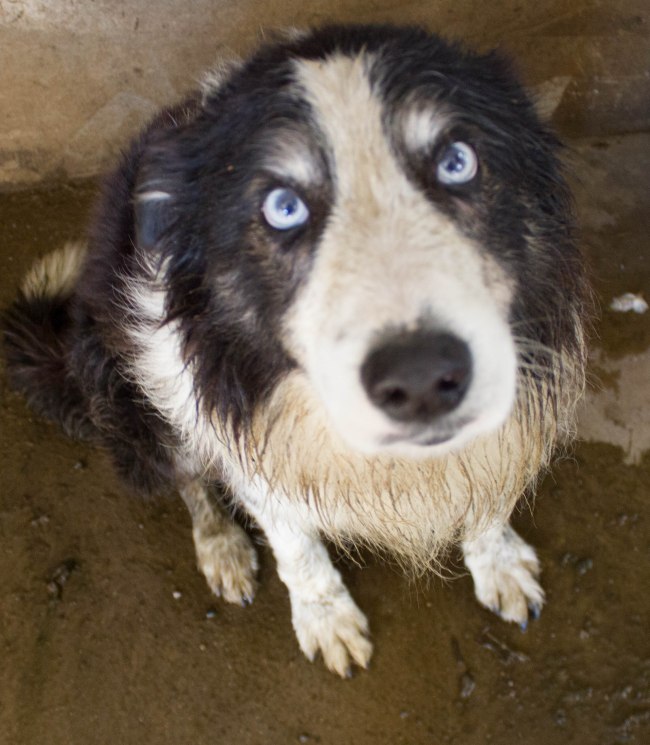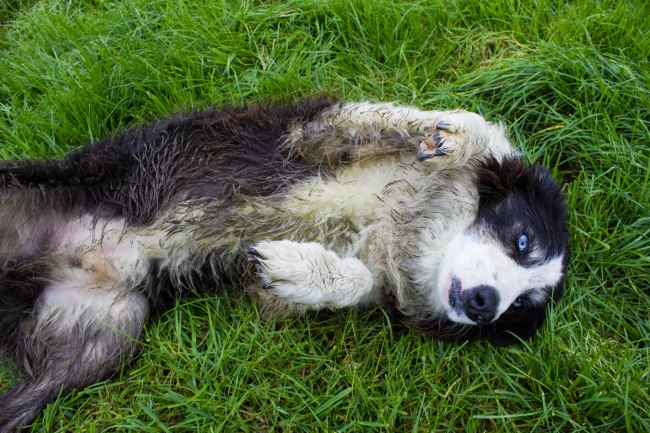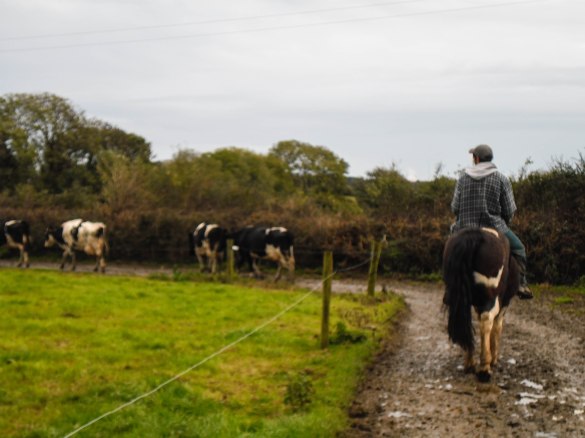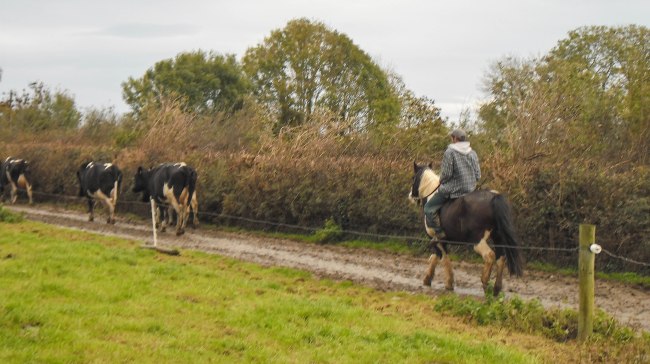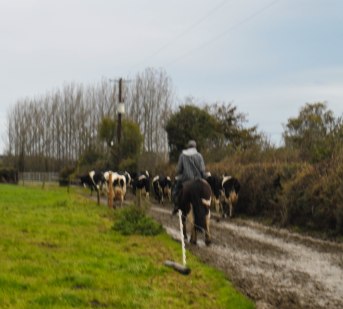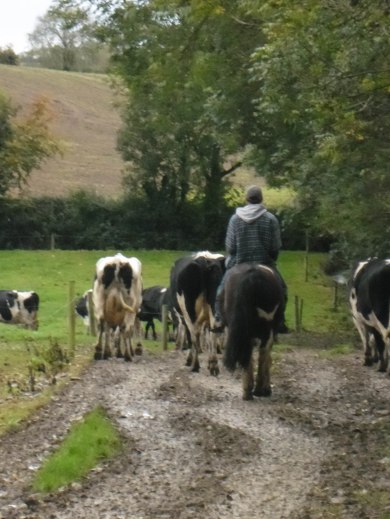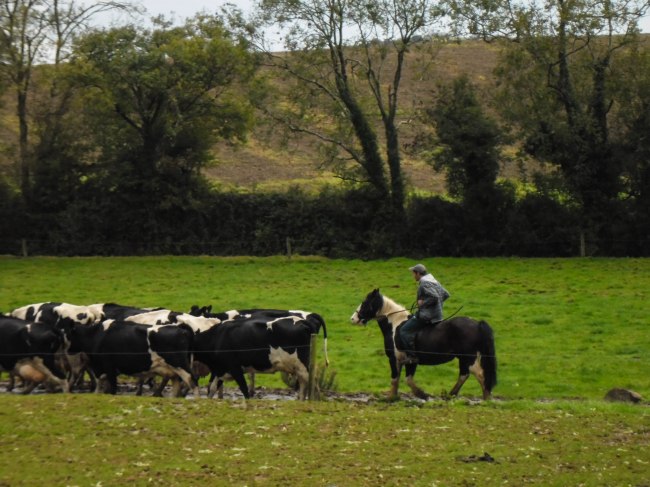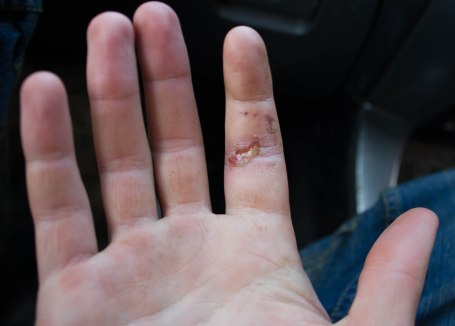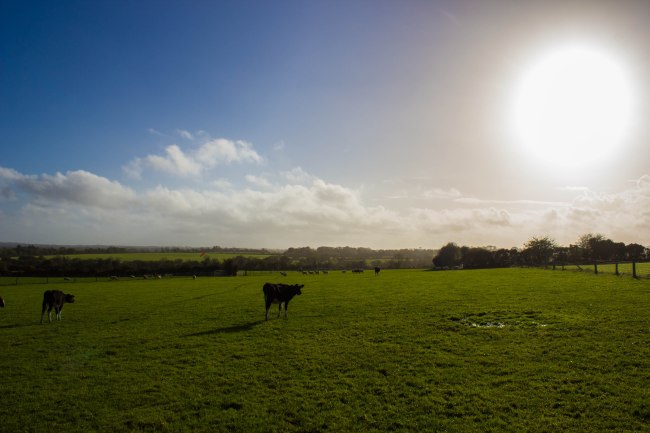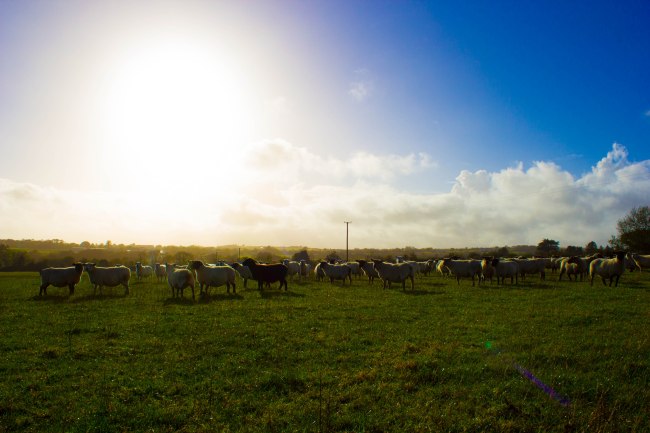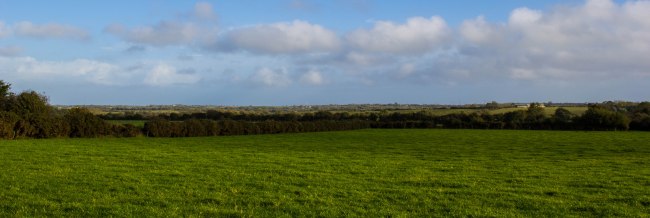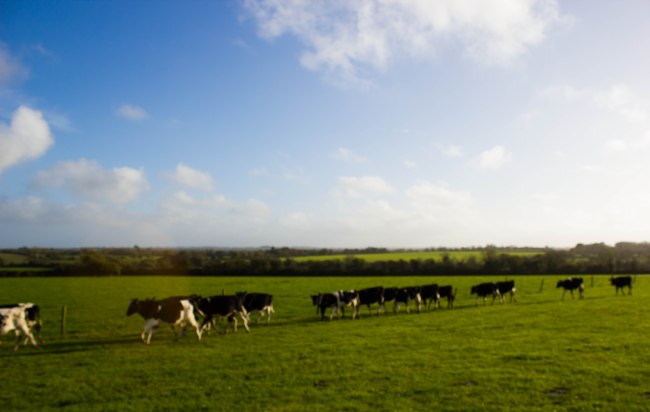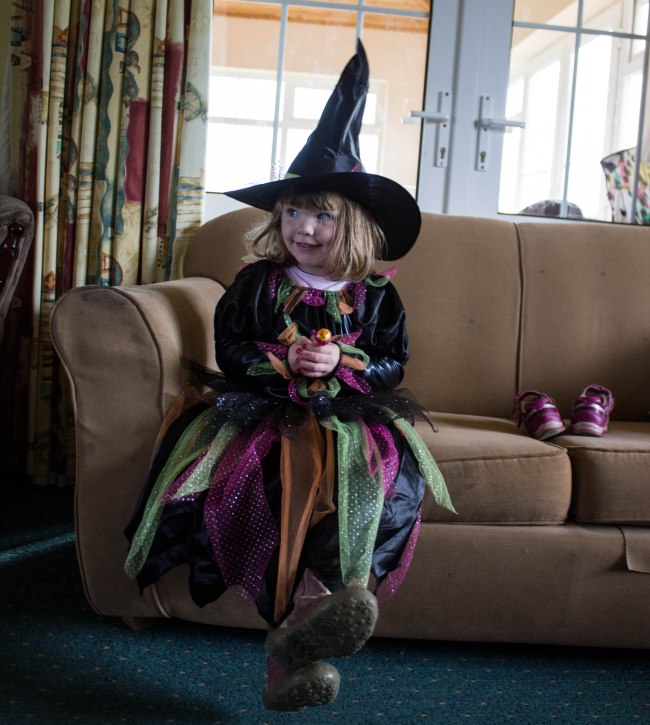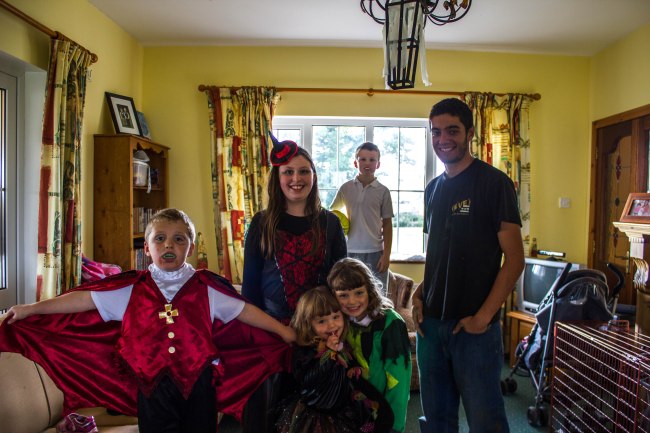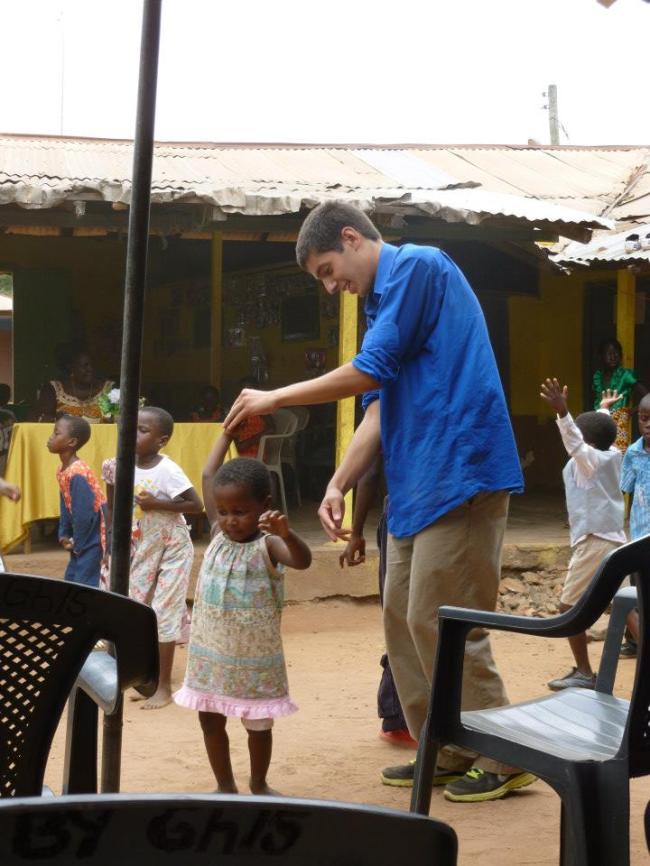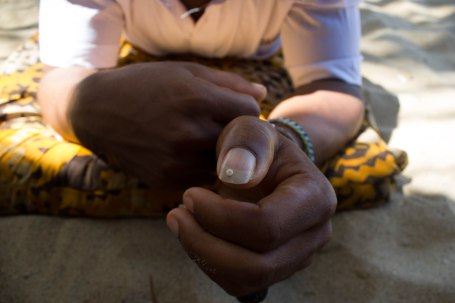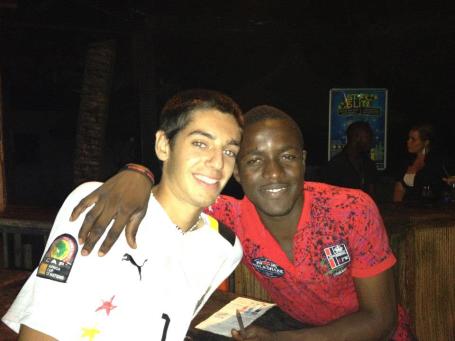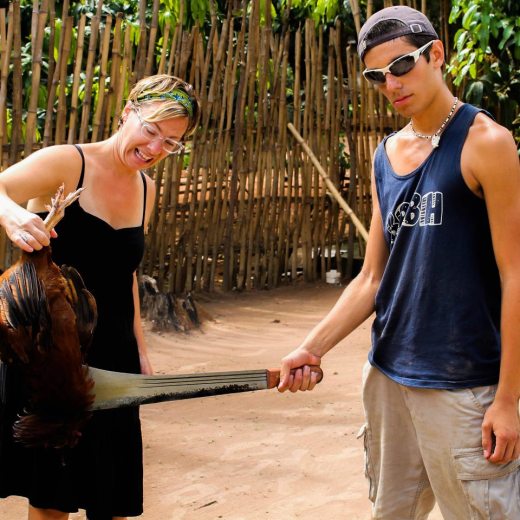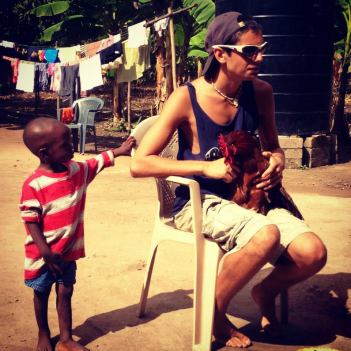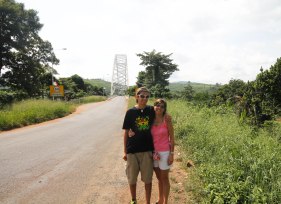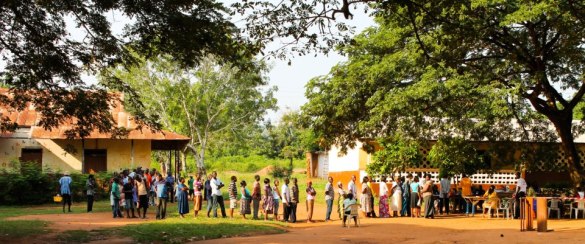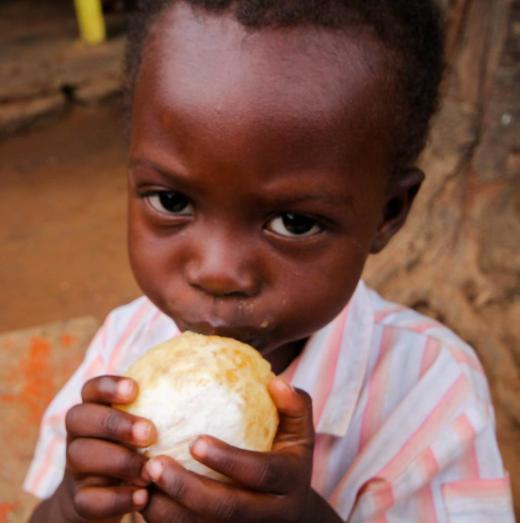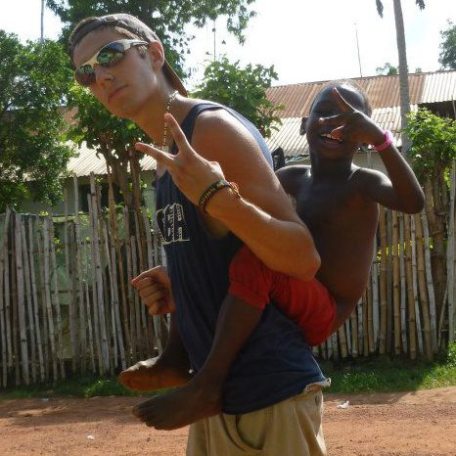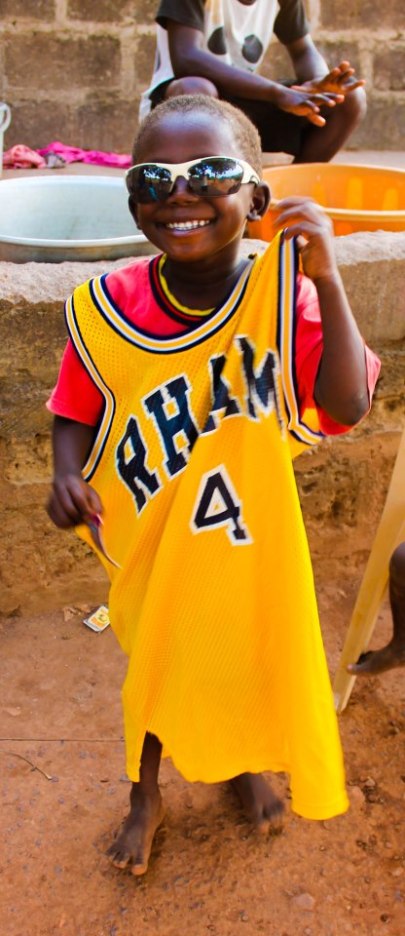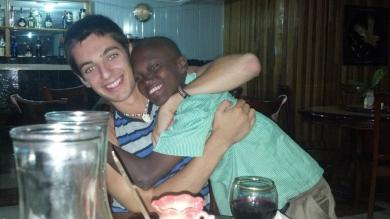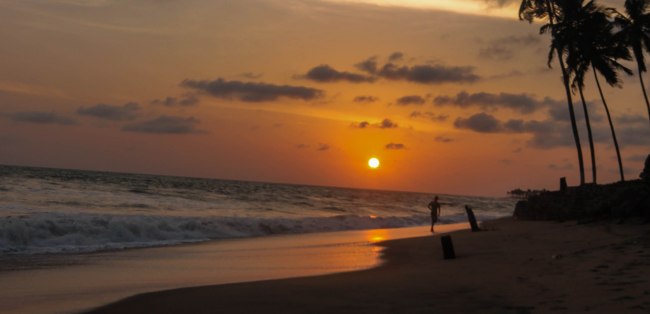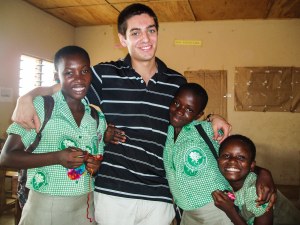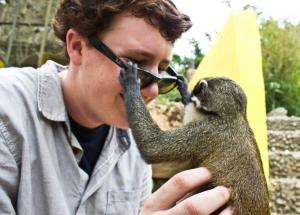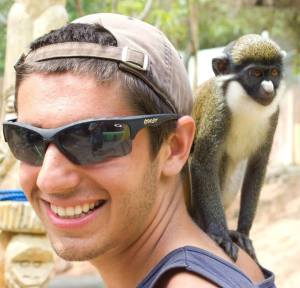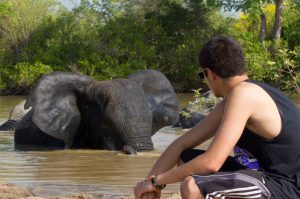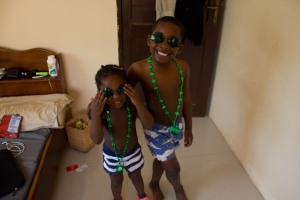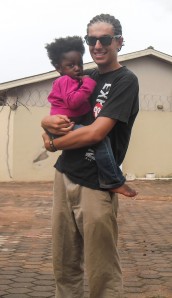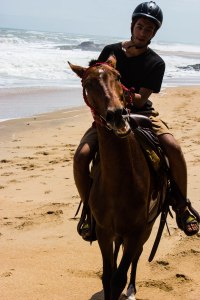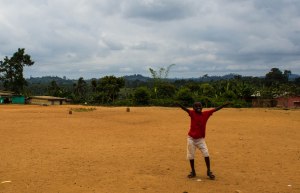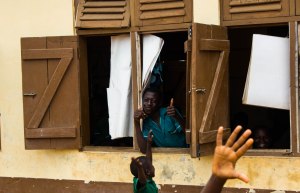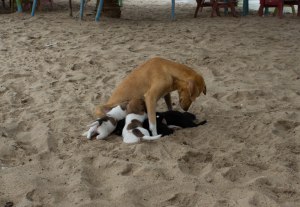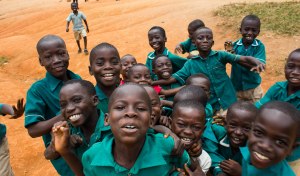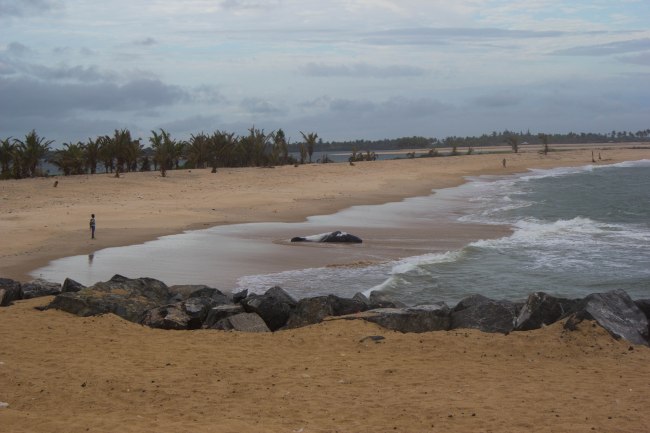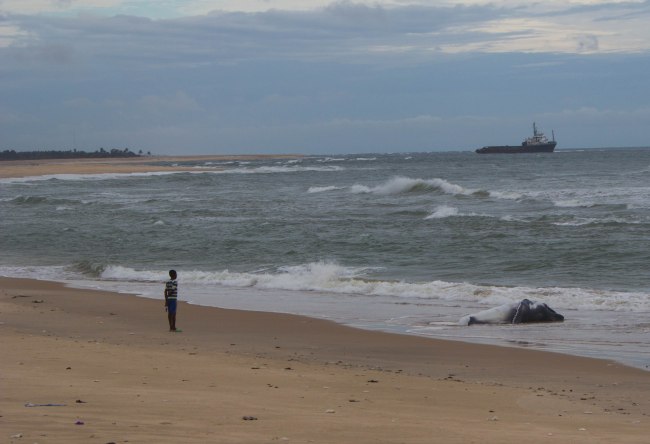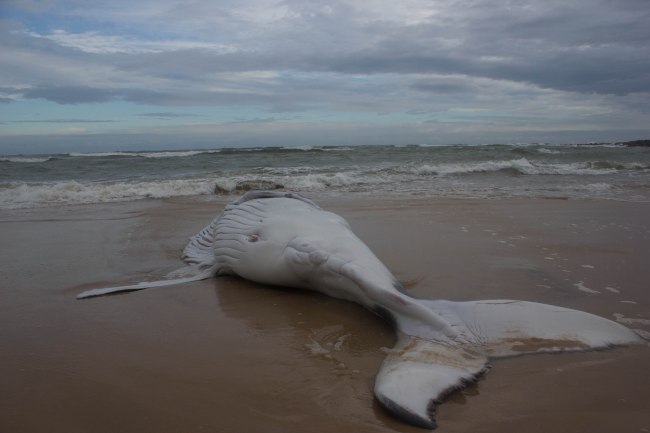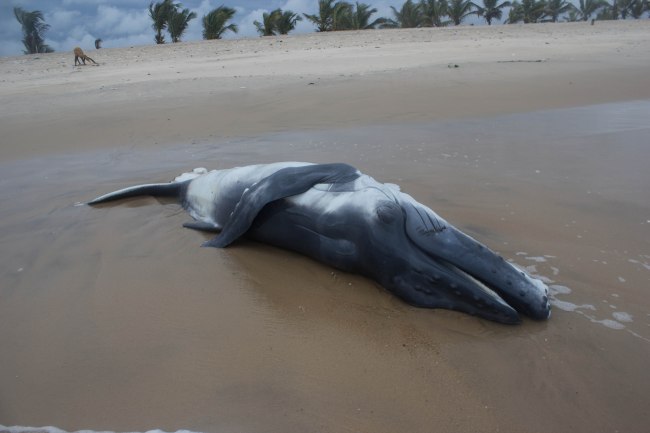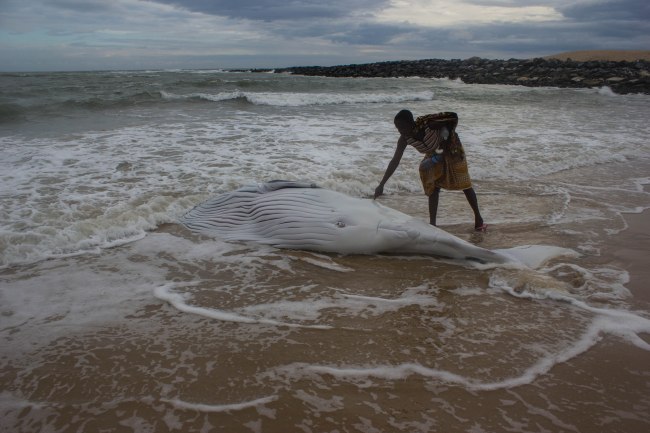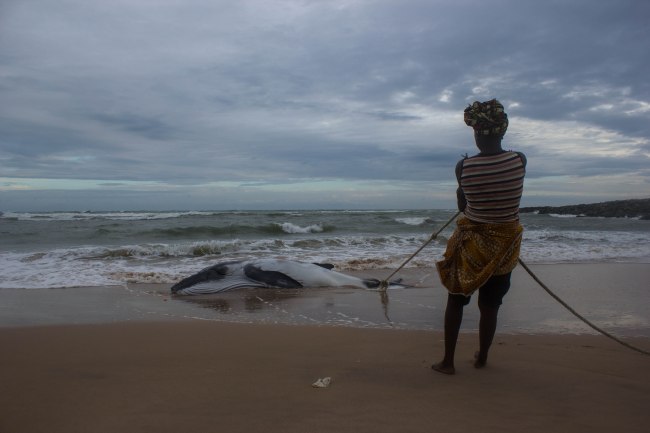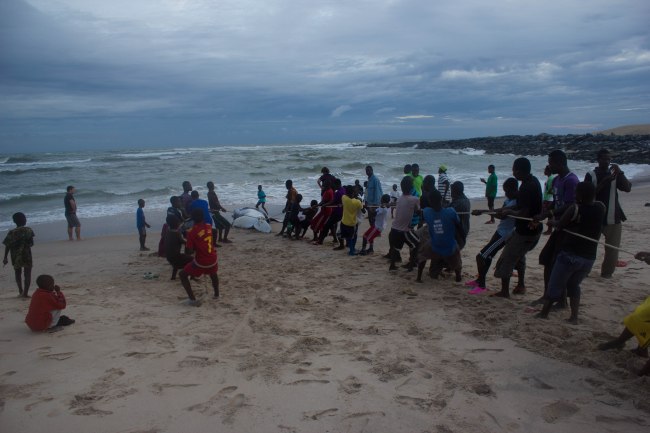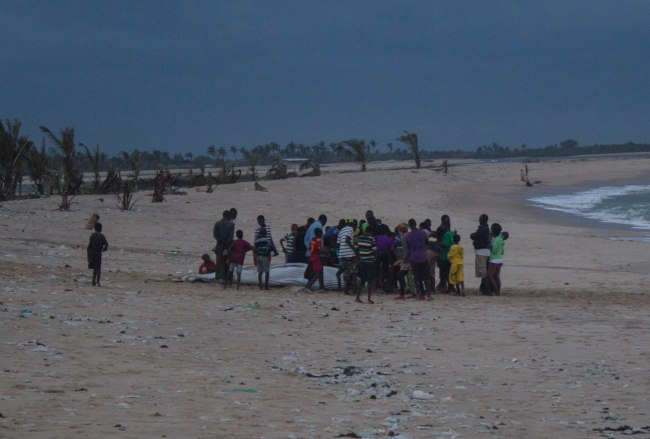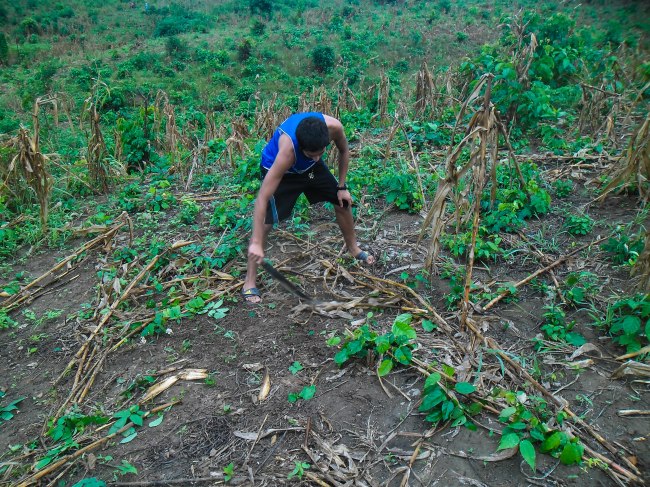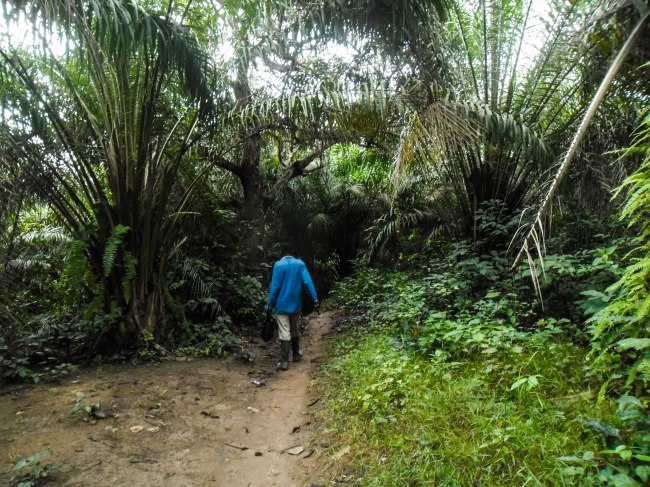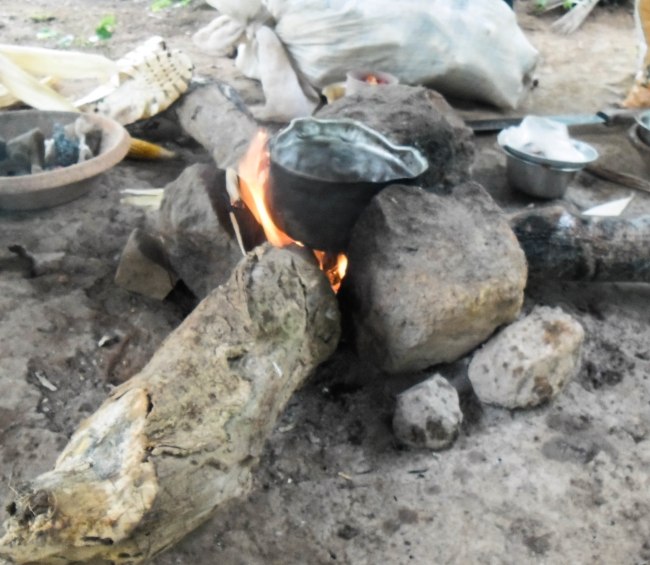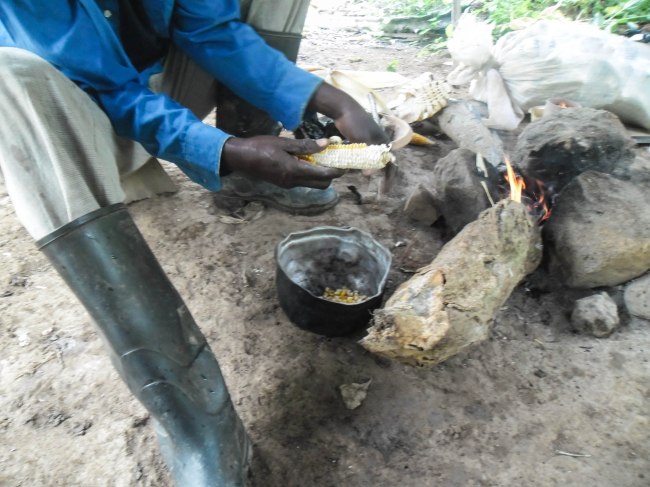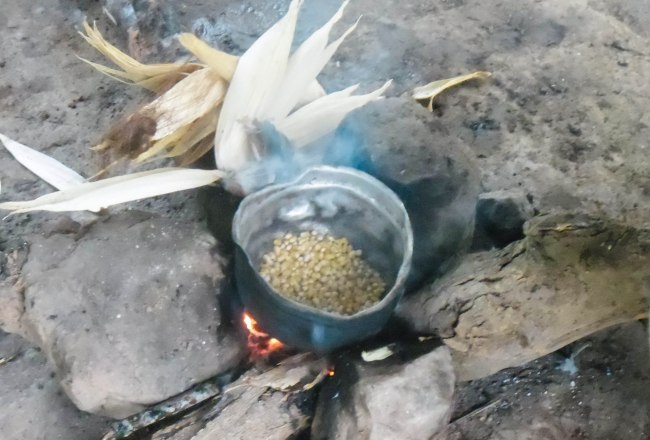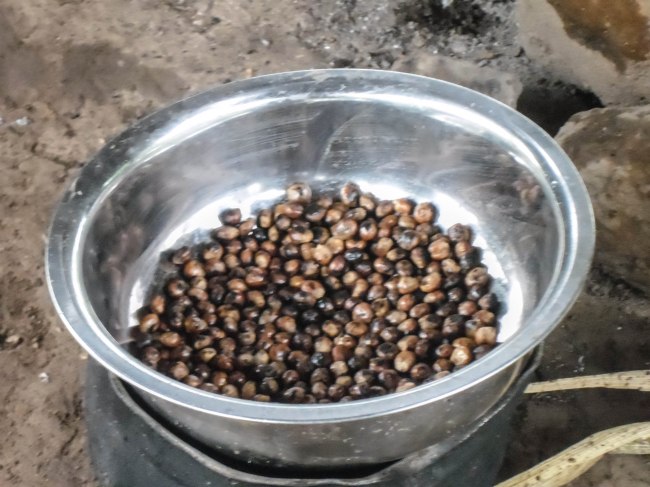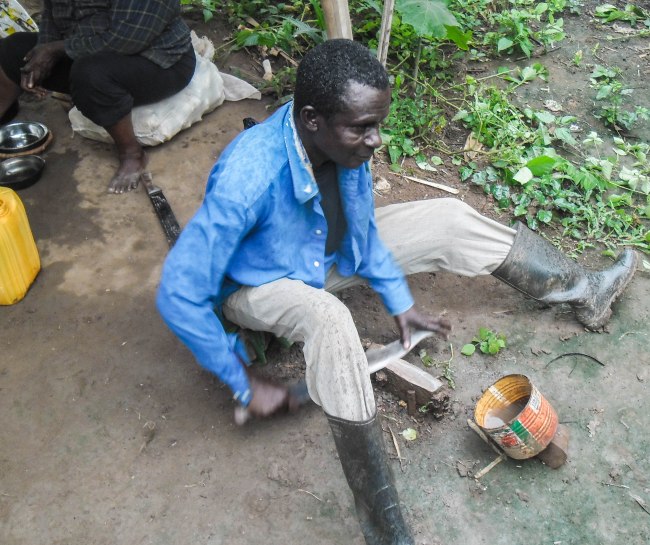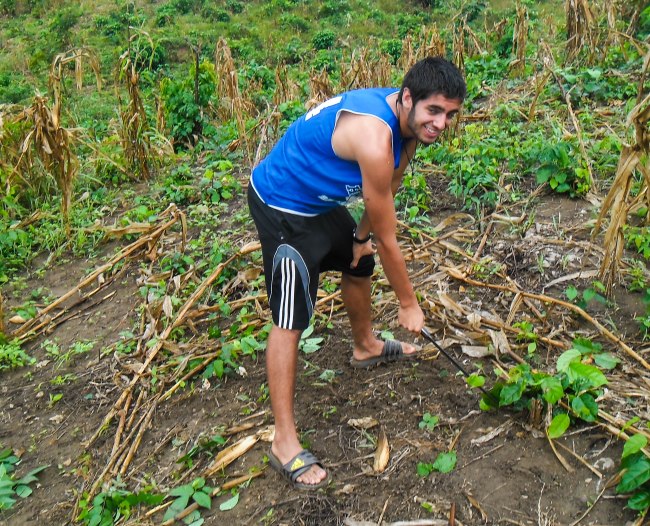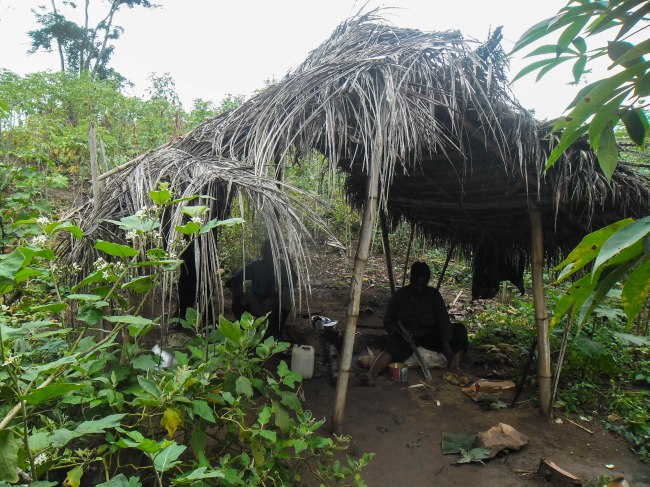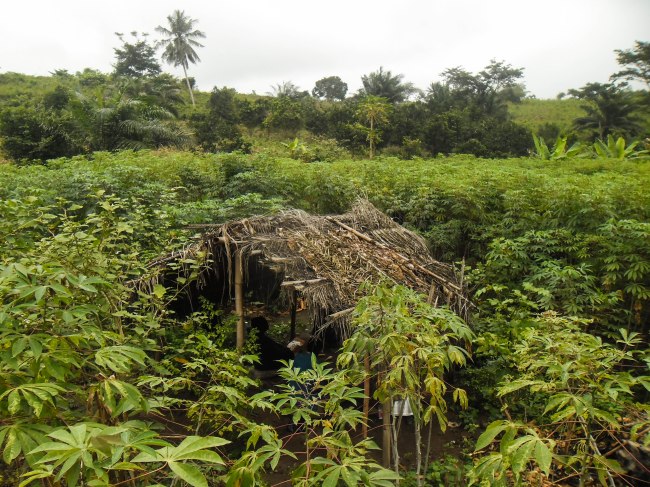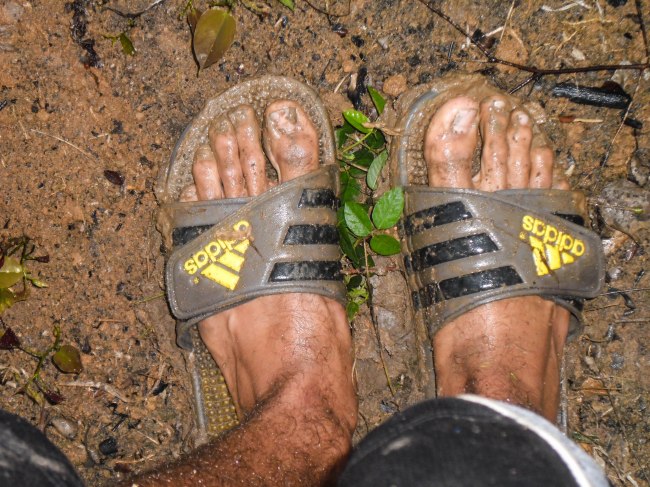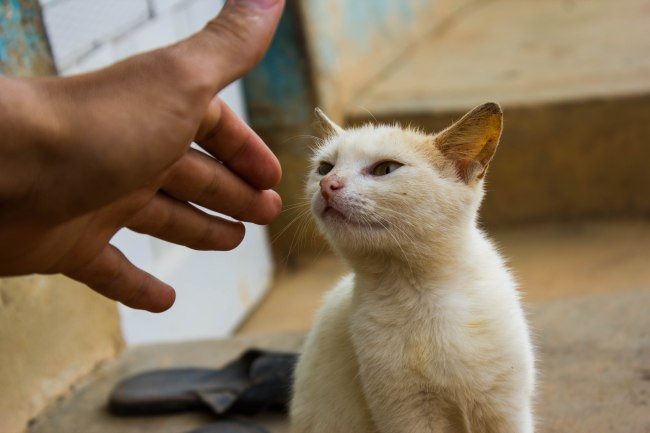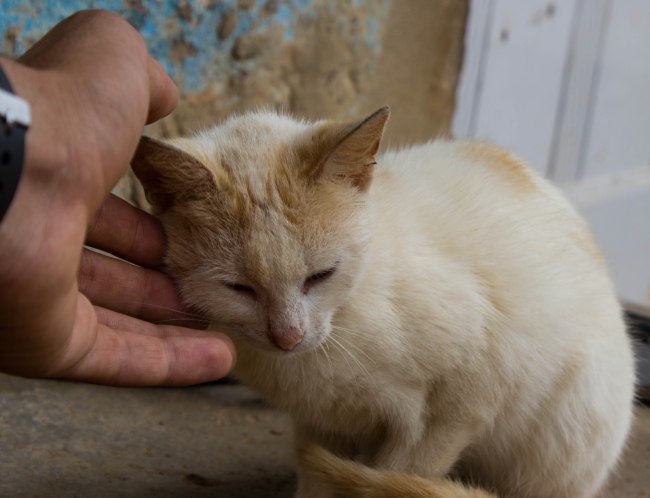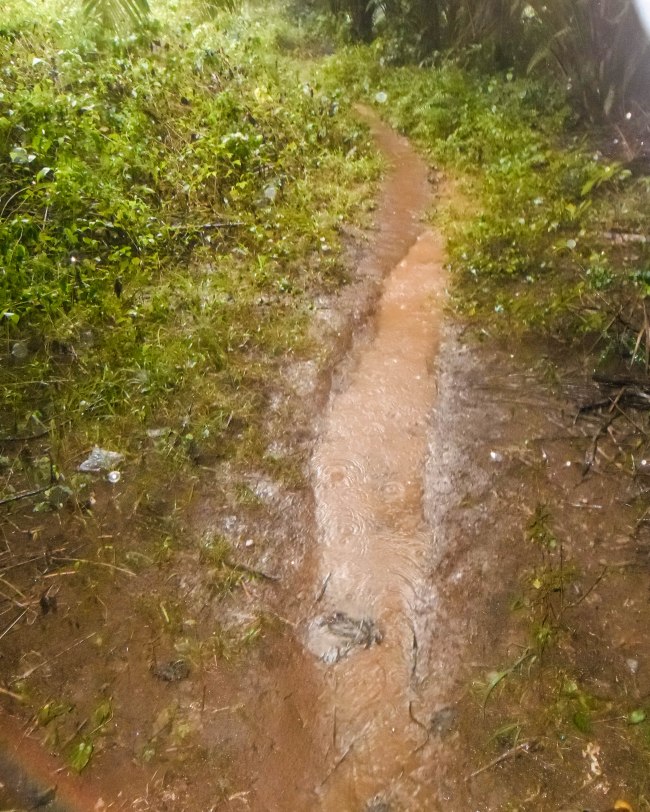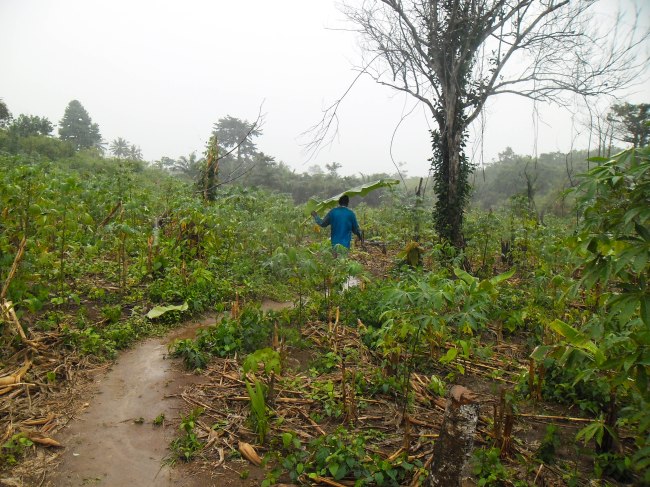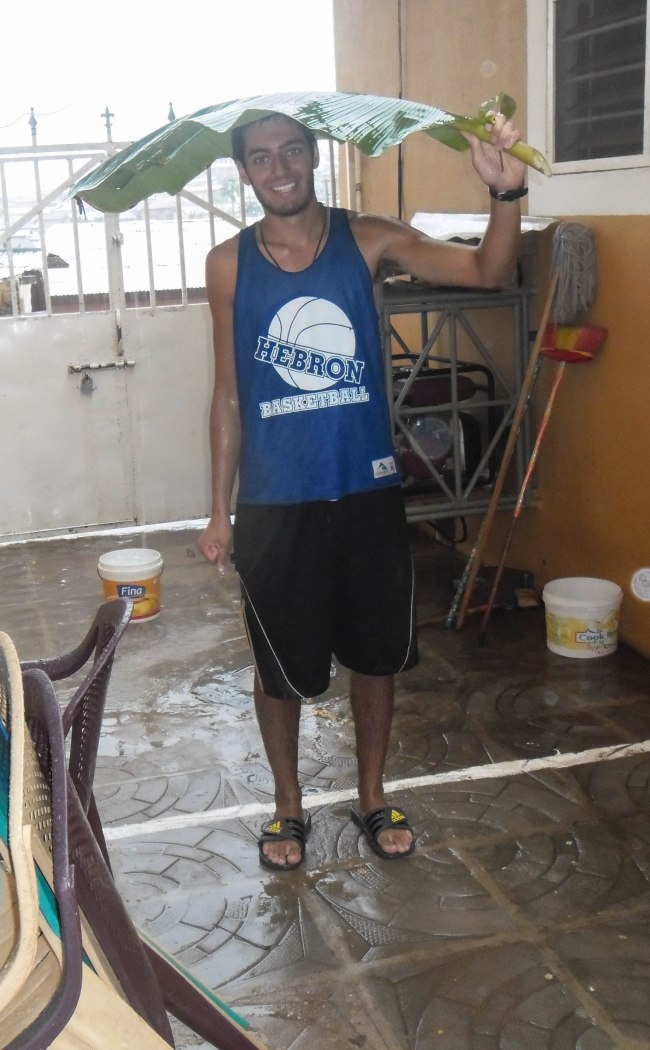“Rather than love, than money, than fame, give me truth”
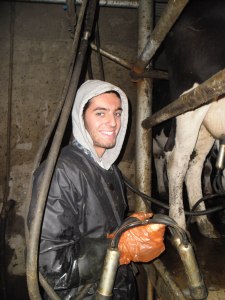
After a 4,000 miles trip that comprised of a plane, bus, train, and ferry ride I finally found myself on a bench in my final destination of Gorey, Ireland waiting to be picked up by the man I would be working for during my stay in Ireland, Des.
After departing Ghana I arranged my connecting flight from Amsterdam to New York to be two and a half months later then my arriving flight from Ghana (a “multiple destination” trip as the airlines call it), leaving my backpack and me over 11 weeks in Europe. I’ve always had a deep-seeded longing to have one of those romantic journeys where you go out with no real plan and limited money and go wherever the winds take you, yet due to the fact that I was alone, 19, and in Europe for the first time I felt that this type of adventure may be a bit too brash for someone in my shoes. I compromised by registering with some organizations called workaway and helpx that act as middle men between travelers such as myself and “families, individuals or organizations who are looking for help with a range of varied and interesting activities.”
I was immediately drawn to these programs as they allowed the chance to truly immerse myself into another culture, by not only traveling through it but working and living in the country as well.
To me the idea of bouncing around different countries in Europe, working for my meals and bed doing real, manual jobs seemed about as perfect of a way to fulfill my pent-up wanderlust as I could get.
Sure, the work may not be glamorous (especially not in my case since I narrowed my search down to farms), the homestays may not be perfect, and the cultural adjustments may not be seamless, however I fully realized and even embraced the premonition of the discomfort I would encounter over the next few months. I believe that one flaw of our youth is that we are completely removing discomfort from our lives. We strive for each phase of our life to pass with known, comfortable results and for nowhere along the road for their to be uncertainty, loneliness, or adversity. Granted this is rarely the case, yet my point is that for most an ideal life path is like an American highway, straight, well paved, and with signs all along the way. I believe that the road of life should more mirror the ones I’ve recently left in Ghana, predominately unpaved, ridden with unforeseen potholes, and at any time could completely disappear under recent floods or severe degradation leaving the only certainty being that you never know where you’re going to end up.
As they say a challenge in which a successful outcome in ensured isn’t a challenge at all.
So while I was no longer bouncing away crammed into a tro-tro on the roads of Ghana, my current road of life looked just as uncertain as I was sitting on that bench. A booming “Ey there Anthony!” from behind me abruptly interrupted my metaphorical thinking and I turned to return the firm handshake of Des. In classic Irish fashion the first thing Des did was offer to buy me a pint of Guinness at the pub, of which I respectfully declined, due to my attire, hygiene, and energy level I would not have made a great first impression for myself in my new stomping ground.
He gestured to get into his car (at which point I tried to get in the wrong side due to the fact that in Ireland the steering wheel is on the other side, which Des thought was hysterical) and proceeded to drive me the 5 km to his farm nestled on the outskirts of town.
“How’d you find me so easily,” I asked him on the way back. My workaway profile offered a picture of me, but I tried to impress my potential hosts by picking a picture in which my back is turned and an elephant is in the background so I didn’t think it would provide much help.
“You said you were American, I figured it wouldn’t be too hard, eh? Turns out I was right,” Des giggled.
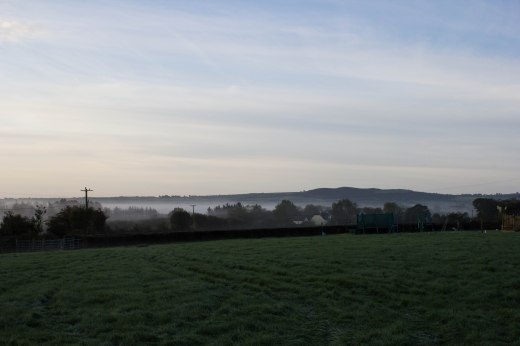
The view from the trailer on a misty morning
The next day ushered in my first day of work in the land of the leprechauns. On our walk down to the barn Des asked me if I had any experience with working on a farm, milking, driving tractors, etc. to which I replied truthfully that I had little, a friend of mine growing up lived on a farm so I had milked a goat and held the wheel on the tractor once before. Des nodded and he spent the next few hours teaching me the in’s and out’s of his milking operation, an enterprise that milks almost 100 cows twice a day.
After a few days, I had the whole thing pretty much down, and now feel comfortable relaying “How to Milk Cows the Des Way” (feel free to skim (pun intended), unless you wish to follow in my footsteps and become an Irish milkman most of the information is extraneous.)
- First herd and bring the cows in from the field into the barn.
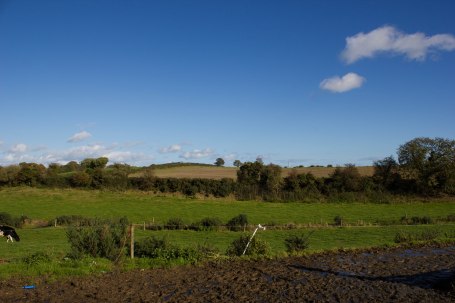
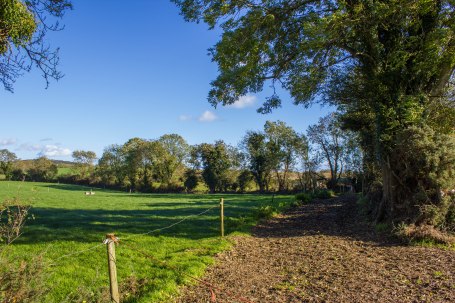
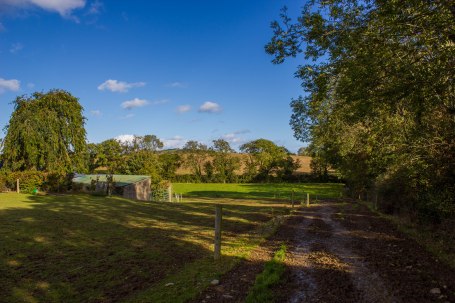
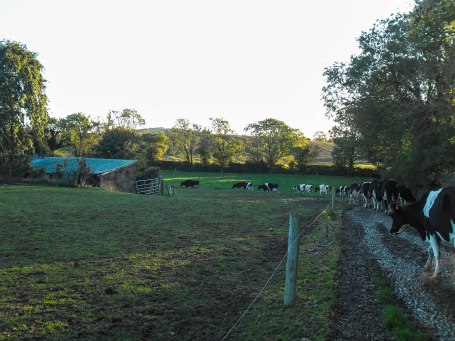
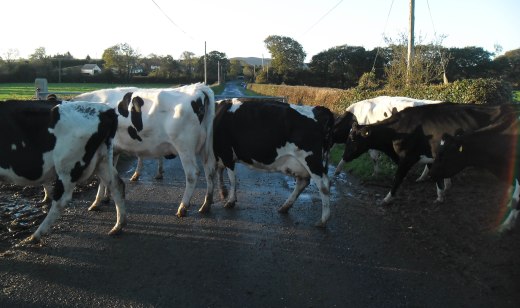
Bringing the cows in
- Prep the milking parlor: turn on the milking machine, air duct, water cooler, insert the filter, tighten the pressure knobs, pull up all the buttons on the clusters up, and put the hose in the milk tank.
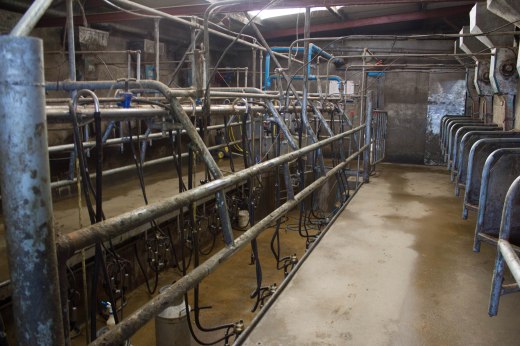
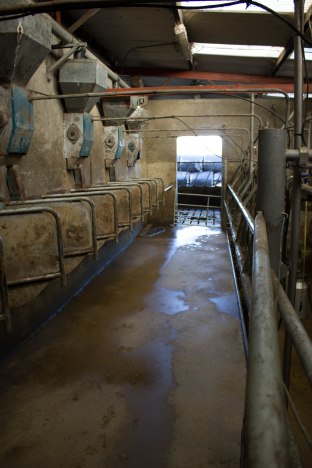
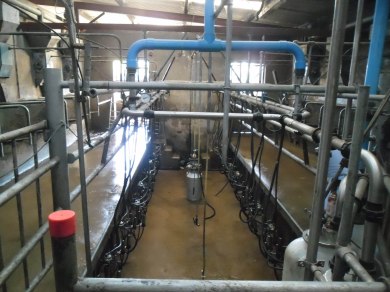
- Clear the cow entrance into the milking parlor allowing the first 18 cows in (9 on each side).
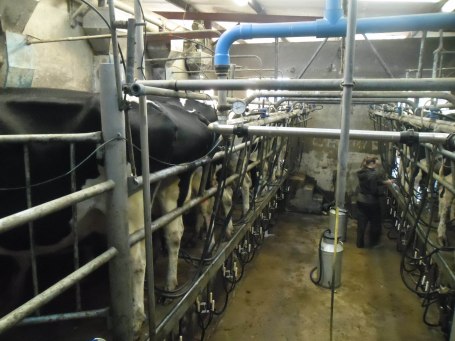
The milking parlor fully loaded up
- Milk the cows: first go through with a paper towel and clean off each of the cow’s teats. Then push the button down on the cluster, starting the suction and place each of the four milk suckers on their destined teat, being sure to watch out of any cows marked with orange signifying that they had a damaged or diseased teat that wasn’t to be milked. Once the cluster is on, wait a few minutes for the cow to be sufficiently milked before pulling the button back up, removing the suction and allowing for the cluster to be taken off. Finally, spray each teat with a disinfecting spray that doubles as a catalyst causing the teat to close up again.
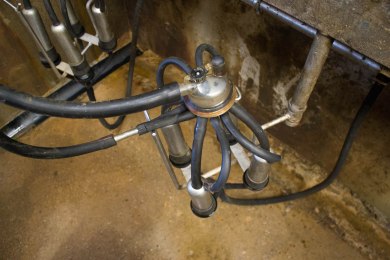
A cluster
- Open the gate at the far side allowing the milked cows out.
- Open the bar at the other end of the milking parlor, allowing 9 more cows in to get milked (unfortunately the bar is much too high and the cows can easily duck under it, which poses a huge problem as the un-milked cows then try to exit the parlor with the milked cows. I saw this happening on my second day and tried to be a hero by jumping out in front of the un-milked cow like Gandalf in the first Lord of the Rings movie shouting, “You shall not pass!” Unlike my wizard hero the 1,500 pound cow lowered it’s head and gave me the Madden truck stick like Tim Tebow used to in his old days at Florida. Des of course just giggled and I never tried that again).
- Pull the levers down, giving feed to each cow.
- Milk the new cows, and repeat the last few steps until every cows has successfully been milked (except for the one “joker” heifer as I call her who doesn’t get milked and is marked with orange tape).
- Once all the cows are milked, begin “washing up”: first push down all the buttons on the clusters, and adjust the 4 swtiches on the milk tank. Then turn off the water cooler, remove the hose from the milk tank, and suck up a half a bin of water into the milking machine to wash the milk out. After half the water is gone, remove the filter and suck up the other half bin. Once the water is all gone, suck up a full bin of cleaning acid allowing it to circulate for between 5-10 minutes, or until the water bin fills up. Then suck up another bin of water into the machine, washing out the acid. Once all the water is through and out the hose, put the 4 switches back to their original position, turn the milking machine off along with the air duct.
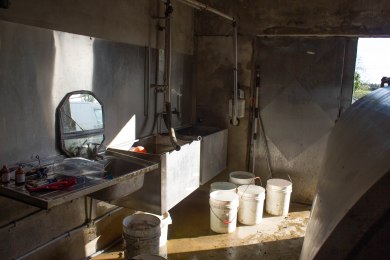
The back room of the milking parlor
- Wash down the milking parlor, sweeping away all the fresh cow waste our heifer friends recently deposited.
Along with memorizing these steps, after my first few days I picked up some valuable tricks of the trade. For one, I originally put the clusters on the teats Michael Jordan style, with my face knotted in concentration and my tongue sticking out. Youth sports coaches always told me that sticking my tongue out was a bad habit, yet they never made enough of an impression to make me buck my habit. It wasn’t until my third day when a heifer decided that the appropriate time to unload its seismic load of manure was when my coworker, a French girl named Celine, was positioned directly underneath her. Now in America we toss around the term “shit storm” rather loosely (sorry for the profanity, I think here it is necessary). For me, sports analyst Stephen A Smith comes to mind when the term gets brought up, as he fancies himself as someone who can unleash quite a shit storm on someone when the time is right. Yet the substance that came out of this cows rear end and plummeted down directly onto the face and hair of poor Celine was a shit storm the likes of which would have undoubtedly send Stephen A Smith running for the hills.
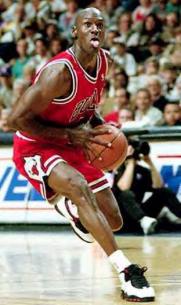
What I looked like milking my first few days



Couldn’t decided what picture of Stephan A Smith I liked the best, so I took them all
After watching poor Celine suffer this fate, I decided that when my day of reckoning comes and I wind up in said position, I want to meet my shit storm with my mouth securely closed and my tongue stashed safely in my mouth.
Just a few hours after the colossal dump cascaded down onto Celine’s French face Des asked me to take Celine and herd the cattle in the pasture down the road up to water. It was an easy enough task except for the fact that the pasture was 3 km away and among its ranks was a fully grown bull, the kind that has the big piercing on it’s nose and will charge you if you mess with his ladies.
Des told me to take his tractor to avoid getting trampled like a Spanish matador, the only problem was I wasn’t very skilled driving a manual car, let alone a manual tractor. This was no baby, lawn-mowing tractor either; this was a big boy tractor. Des was unbothered by this, and told me to take it up and down the driveway a few times to get a handle of it and from there I would be fine driving it 3 km down the road through traffic.
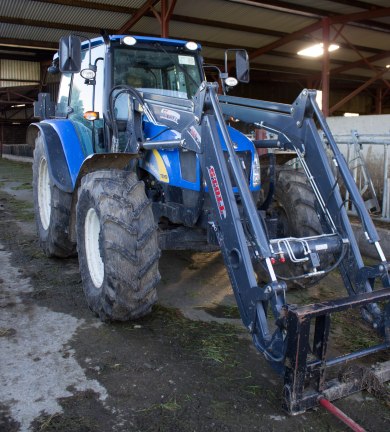
My ride
During my practice drive I managed to make it up and down the driveway three times, stalling twice which to Des was more then enough to qualify me as a competent tractor driver. On the road, I started out fine, I went a respectable speed, pulled over to let cars pass me, and managed to come to a complete stop and then back up to speed again at a stop sign. Right as a started to get in a grove I saw a car in the distance driving on the wrong side of the road, which struck me as rather odd. It took me a few seconds to realize that out of that stop sign I had turned onto the wrong side of the road and was now cruising into oncoming traffic. Luckily I realized this before any cars came and nonchalantly made the transition over to the correct side of the road, telling Celine that I actually meant to do that. When we actually got the herd of cows, I had my first standoff with the bull as I brought them through the gate, which again luckily I turned out victorious. As it turns out this bull and I would develop quite a history by the end of my time in Ireland, but more on that later.
My time spent not covered in cow waste is usually spent hanging out with the Brady Bunch that is Des’ family. Learning the names of his five children was infinitely more difficult then mastering the milking parlor: Daryl (2 girl), Dieren (5 girl), Dieolyn (6 boy), Dieormet (8 boy), and Darvla (10 girl).
After a few afternoons playing soccer with Deirmot in the backyard he convinced his dad that my afternoons should be spent playing soccer instead of working, which successfully gave me a few hours off every day to organize a 2 vs. 2 match that pitted Dieren and myself against the dynamic dup of Dieormet and Dieolyn.
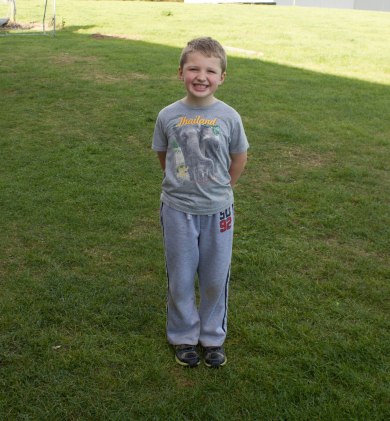
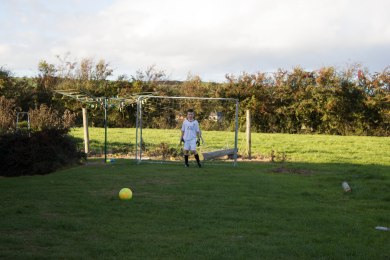
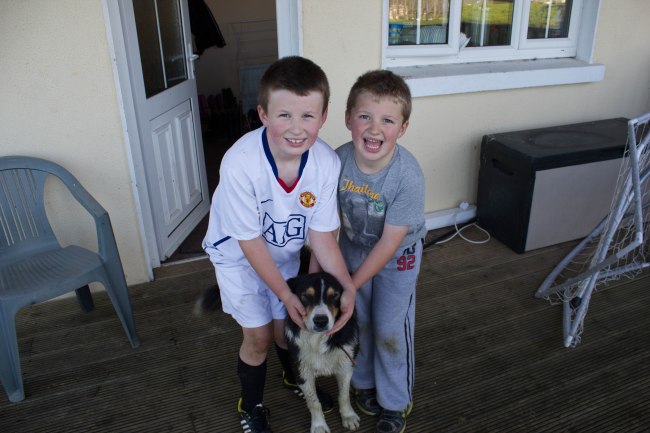
Dieromet, Dieolyn and Rex
Outside of the little munchkins, Des’ mother, Betty, and I also quickly became friends. After introducing myself, her response was “Ye have beautiful color” and pointed at her eyes. Quite possibly the easiest way to get onto my good side is to compliment me on my eyes, and Betty wasted no time. Celine, Des, and I report to her house next door every morning for poached eggs, Irish pudding, and tea, a real breakfast of champions, and we immediately bonded over cholesterol ridden meals about our shared dislike of the Tea Party in America and how shameful it was that no one in politics could get along.
So now my stay in Europe is officially under way. I’m covered in cow shit the vast majority of my waking hours, have already confronted both a bull and driven a tractor down an Irish road and befriended a stubborn horse and my time in Ireland has just begun. I can now officially say that my European adventure is underway.
Some more pictures:
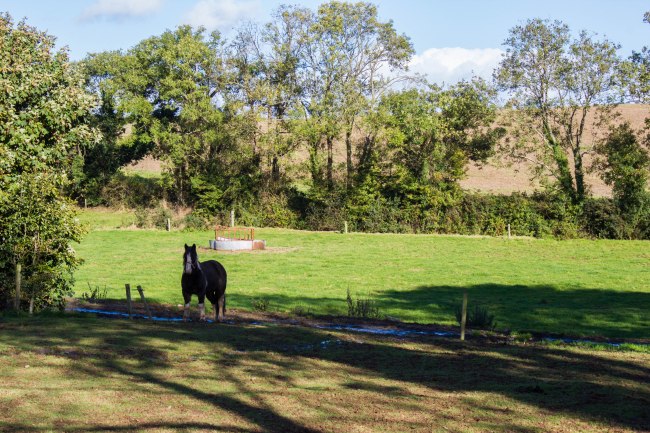
Charlie my steed
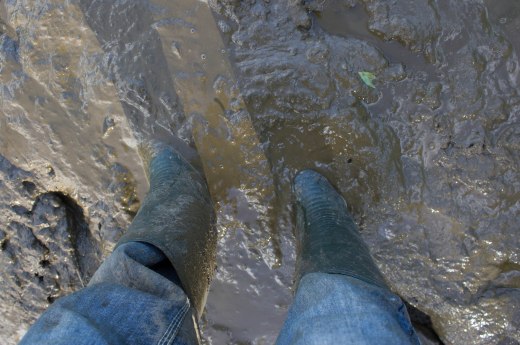
So much cow poop
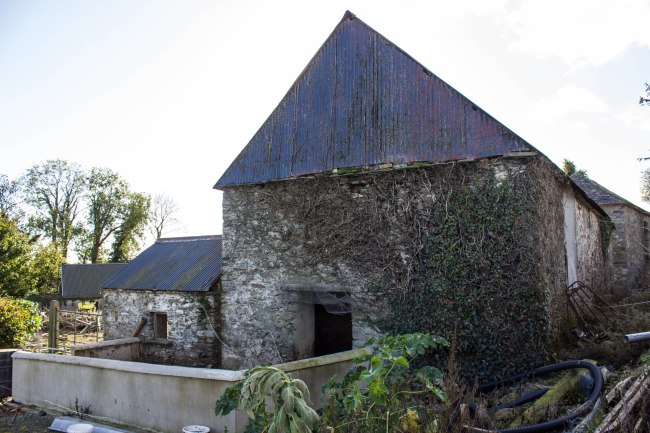
Betty’s Garage
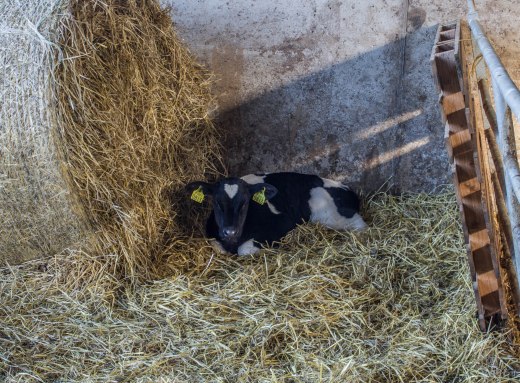
My second favorite calf, Marquis
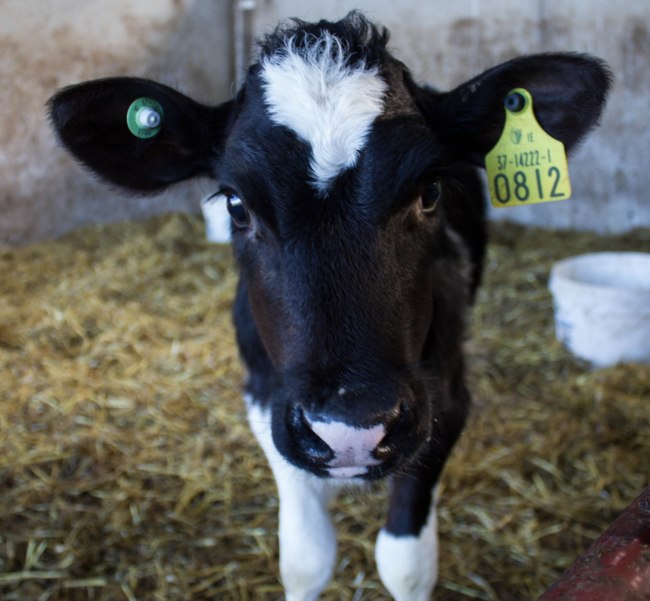
My favorite calf, Marcus
